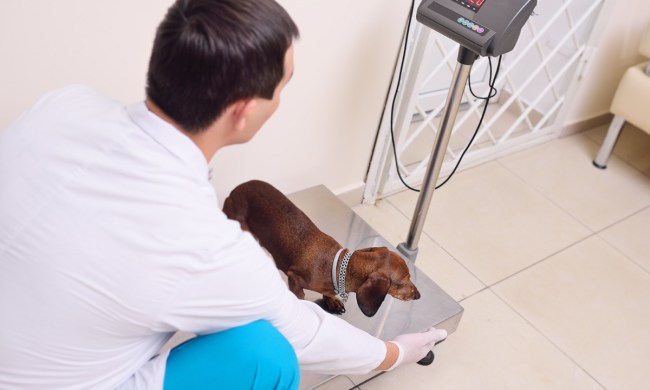
When you have a little furry friend by your side, it’s only natural to want to share just about everything with them. Even when it’s a simple gesture like letting them on your bed for a nap or sharing a bite of a snack, bonding over these little things can be some of the best moments you’ll ever share together. But when it comes to dog-friendly snacks; what exactly can you share?
Many fresh fruits and veggies are great to share with your dog, but can dogs eat oranges? This acidic fruit might be a great morning pick-me-up, but it’s great to double-check before handing a slice to your lip-licking furry friend. Here’s what to know about dogs and oranges.
Can dogs eat oranges?

The good news is that your four-legged BFF can munch on a bite of orange with no problem, but that doesn’t mean you can toss them a slice willy-nilly. Make sure you’re giving your dog a proper portion — and make sure oranges fit into your dog’s diet — before feeding them a bite over breakfast.
Benefits of oranges for dogs
If your dog has no known health concerns or dietary restrictions, a piece of orange, blood orange, or even clementine is just fine for a snack. In fact, these citrus fruits are great sources of several beneficial vitamins and minerals that help your dog live their best life!
Oranges are full of potassium, which boosts heart, muscle, kidney, and digestive health, and fiber, which regulates bowel movements and promotes colon health. Lastly, citruses like oranges are famously wonderful sources of vitamin C. Although dogs don’t actually need vitamin C in the same way humans do, it’s still beneficial for canines because of its antioxidant properties.
When oranges can be bad for dogs
Although oranges can be a delicious and nutritious snack, not all dogs can indulge. Pets with diabetes or other sugar limitations should avoid this fruit and its high sugar concentration, as should overweight dogs or those with known allergies to fruit (though this is rare).
Because oranges are acidic, some dogs can experience stomach upset from eating too much. This is why it’s so important to start slowly when introducing any new snack, including oranges.
How to prepare oranges for dogs

If you want to share a bite of your summertime snack with your dog, make sure to start slow. Only offer one orange slice — or even half of one — to your pup the first time around, and then slowly increase the amount over time. In general, though, only 1 to 3 slices of orange is recommended, depending on your dog’s size. It should go without saying, but the smaller the dog, the smaller the bite!
Even though the flesh of the orange itself is fine for dogs to eat, make sure to remove any seeds or peel before sharing with your furry friend. Both of these pieces have chemicals that can be toxic to dogs, and both of these substances are harder to digest. And skip sharing any orange juice with your pet. A lick or two from a spill won’t hurt, but the extremely high sugar content certainly won’t do them any good.
If you grow oranges in your yard, however, there are even more precautions to take. That’s because the flowers and leaves of the orange tree contain toxins that can make a dog sick. Although orange poisoning is rarely fatal, it can result in a number of uncomfortable symptoms like canine diarrhea and vomiting.
Now that you know this important information, you can make the best decisions for you and your dog. Will you share an orange slice? It’s up to you!



